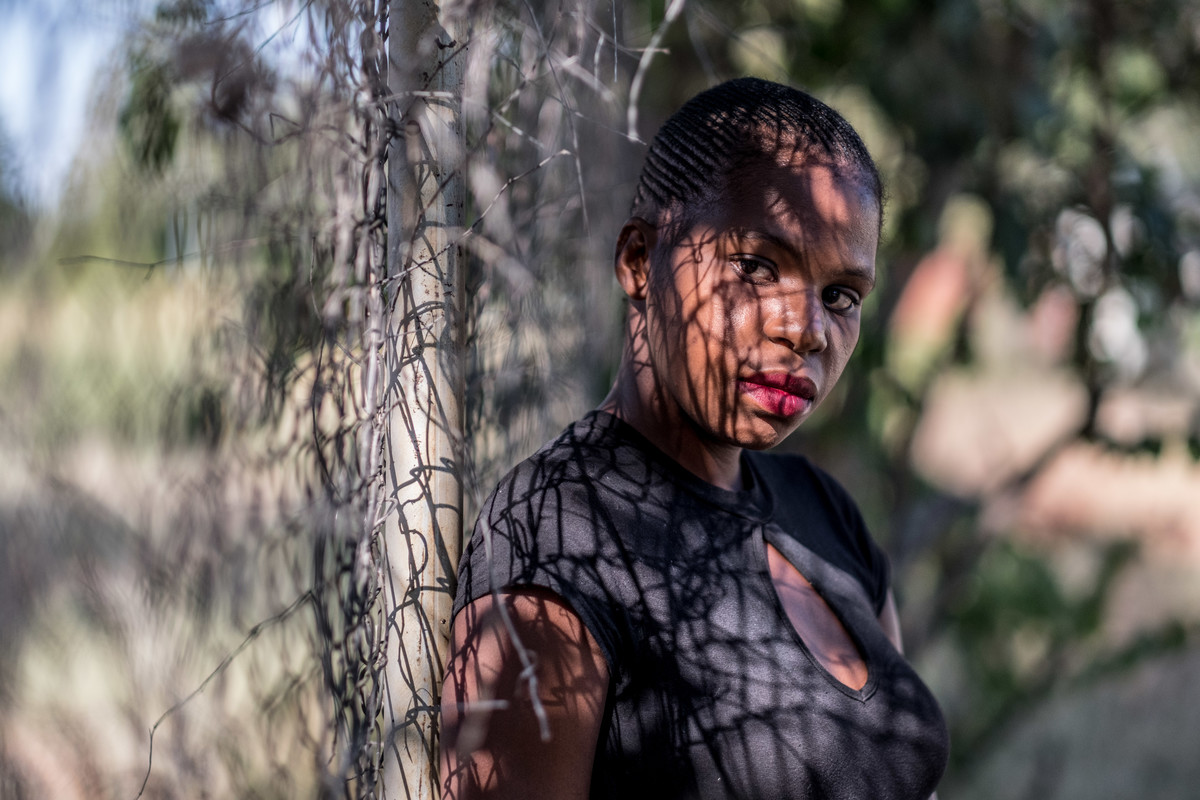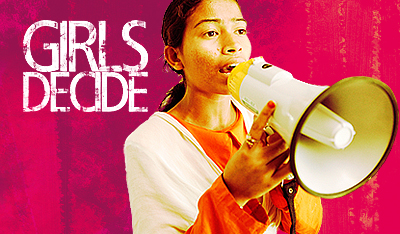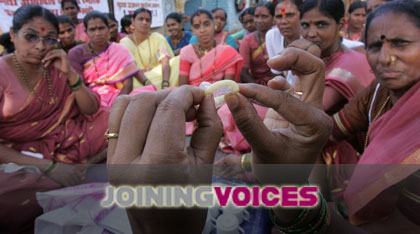

| 01 October 2020
ACCESS
About In a world increasingly affected by natural disasters, prolonged conflict, economic and political crises, and disease outbreaks, there is an urgent need for new models and innovative ways for advancing sexual and reproductive health and rights (SRHR). The Approaches in Complex and Challenging Environments for Sustainable SRHR (ACCESS) Consortium will produce a set of scalable, evidence-based, participatory approaches that support and engage marginalised and under-served populations in complex and challenging environments to claim and access comprehensive sexual and reproductive health (SRH) information and services. Ensuring that all people are able to enjoy their sexual and reproductive health and rights by 2030 requires progress on reaching the most under-served and marginalised populations, including those living in humanitarian settings and other contexts where social disadvantage intersects with oppressive political, climatic, or conflict situations. The COVID-19 pandemic is a real example which is having a devastating impact around the world, adding to the existing difficulties experienced by women and girls and marginalised populations, and weakening already fragile health systems. Without action, conditions will worsen – rising insecurity may cause conflict and place a further strain on SRH services. Our partners Funded with UK aid from the UK government and led by IPPF, the consortium is comprised of Frontline AIDS, Internews, the London School of Hygiene & Tropical Medicine, The Open University, and the Women’s Refugee Commission. By leveraging each partner’s comparative strengths, ACCESS will develop a set of evidence-based tools and models that can be adapted and transferred to a range of settings for an improved, community-led SRHR response. By working with diverse communities in diverse settings in Lebanon, Mozambique, Nepal and Uganda in collaboration with IPPF Member Associations, ACCESS will co-design and test innovative solutions that enable the most marginalised and under-served people to access comprehensive, evidence-based sexual and reproductive health (SRH) information and services. Compounded by COVID-19, each country has unique circumstances: Lebanon, which hosts a huge number of refugees, including 1.5 million refugees from Syria and multi-generational Palestinian refugees who have been in camps and settlements for decades, straining the relatively small health system. Mozambique, which is in the recovery phase after the devastation of Cyclones Idai and Kenneth in 2019, and is vulnerable to the effects of recurrent natural disasters in the context of extreme poverty and low levels of development. Nepal, which experienced a devastating earthquake in 2016 and has been working to build resilience to prepare for the impact of climate-driven hazards. Uganda, which faces multiple challenges, including natural hazards, large influxes of refugees from unstable bordering countries, and a restrictive SRHR policy environment. Our impact Through a participatory process that works with communities to identify their SRHR needs, barriers and priorities, as well as to create, test, and refine innovative solutions, ACCESS will contribute to advancing universal SRHR through four outputs: Resilience: Communities prone to destabilising events, including natural disasters and the effects of protracted conflicts, are better prepared for SRH response and recovery. Quality Services: Innovative, evidence-based service delivery modalities improve the availability, accessibility, and responsiveness of quality SRH services for communities in complex and challenging environments. Agency and Equity: Marginalised populations have increased awareness of their sexual and reproductive rights and increased agency to demand and access SRHR information and services, with the support of an enabling environment. Influence: Evidence generated from the project influences and impacts policy and practice across the humanitarian-development continuum. Tools & resources Take your training (TYTO) online course Principles into practice: Co-creation of learning in complex and challenging environments. (Discussion guide and toolkit) Facilitator’s Kit: Community Preparedness for Reproductive Health and Gender IPPF Comprehensive HIV Services Package Papers & publications Co-creation, participation, and decolonisation: Community participation is crucial in a pandemic: Community participation is crucial in a pandemic - The Lancet Reimagining authorship guidelines to promote equity in co-produced academic collaborations Colonial Conundrums: What happens when a global north-based Sexual Reproductive Health and Rights (SRHR) consortium attempts to adopt a decolonising approach? Unpacking power dynamics in research and evaluation on social accountability for sexual and reproductive health and rights Reaching the most under-served and marginalised populations: Sexual and reproductive health service considerations for people of diverse sexual orientation, gender identity and expression, and sex characteristics (SOGIESC): a systematic review protocol COVID-19 testing acceptability and uptake amongst the Rohingya and host community in Camp 21, Teknaf, Bangladesh Comprehensive Sexuality Education (CSE): Effective comprehensive sexuality education: What is known and what is needed? Online comprehensive sexuality education: What is known and what is needed? Comprehensive Sexuality Education (CSE) for out-of-school refugee youth: What is known and what is needed? Full Review: Effective Comprehensive Sexuality Education (CSE) Other: A graphic elicitation technique to represent patient rights Methods to measure effects of social accountability interventions in reproductive, maternal, newborn, child, and adolescent health programs: systematic review and critique Preparing humanitarians to address ethical problems Covid-19 in humanitarian settings: addressing ethics to reduce moral distress In April 2021, IPPF received formal notification of the FCDO’s decision to terminate the grant to the ACCESS Consortium. The project closed on 31 December 2021.

| 30 June 2016
Girls Decide
This programme addresses critical challenges faced by young women around sexual health and sexuality. It has produced a range of advocacy, education and informational materials to support research, awareness-raising, advocacy and service delivery. Girls Decide is about the sexual and reproductive health and rights of girls and young women. Around the world, girls aged 10 to 19 account for 23% of all disease associated with pregnancy and childbirth. An estimated 2.5 million have unsafe abortions every year. Worldwide, young women account for 60% of the 5.5 million young people living with HIV and/or AIDS. Girls Decide has produced a range of advocacy, education and informational materials to support work to improve sexual health and rights for girls and young women. These include a series of films on sexual and reproductive health decisions faced by 6 young women in 6 different countries. The films won the prestigious International Video and Communications Award (IVCA). When girls and young women have access to critical lifesaving services and information, and when they are able to make meaningful choices about their life path, they are empowered. Their quality of life improves, as does the well-being of their families and the communities in which they live. Their collective ability to achieve internationally agreed development goals is strengthened. Almost all IPPF Member Associations provide services to young people and 1 in every 3 clients is a young person below the age of 25. All young women and girls are rights-holders and are entitled to sexual and reproductive rights. As a matter of principle, the IPPF Secretariat and Member Associations stand by girls by respecting and fulfilling their right to high quality services; they stand up for girls by supporting them in making their own decisions related to sexuality and pregnancy; they stand for sexual and reproductive rights by addressing the challenges faced by young women and girls at local, national and international levels.

| 01 June 2016
People Living with HIV Stigma Index
The People Living with PLHIV Stigma Index documents how people have experienced HIV-related stigma and how they have been able to challenge and overcome stigma and discrimination relating to HIV. People living with HIV receive training in quantitative data collection, and implement the survey using a standard questionnaire which covers the following 10 areas: Experiences of stigma and discrimination and their causes Access to work and services Internal stigma Rights, laws and policies Effecting change HIV testing Disclosure and confidentiality Treatment Having children Problems and challenges for people living with HIV The People Living with HIV Stigma Index puts the principle of the greater involvement of people living with HIV and AIDS (GIPA) into practice, the research is driven by people living with HIV and their networks and provides them with evidence and opportunity to address challenges in their communities and catalyze change. The findings are instrumental in increasing collective understandings of stigma and discrimination, and detecting changes and trends over time. The evidence has shaped future programmatic interventions by revealing areas of need and gaps in existing programming. The People Living with HIV Stigma Index is a powerful advocacy tool which will influence policy and support the collective goal of governments, NGOs and activists to reduce stigma and discrimination related to HIV. The People Living with HIV Stigma Index has been rolled out in more than 40 countries, where it has been a catalyst for fostering change. Each country is different, from the number of people interviewed to the composition of responses from different group (such as men who have sex with men, sex workers, injecting drug users and other key populations). The People Living with HIV Stigma Index was developed and pioneered by a partnership between the International Planned Parenthood Federation (IPPF) and the Global Network of People Living with HIV(GNP+), the International Community of Women Living with HIV (ICW) and the Joint United Nations Programme on HIV/AIDS (UNAIDS).

| 30 May 2016
Joining Voices
More and more low- and middle-income countries are pledging pledged to expand access to rights-based family planning. Through Joining Voices you can ensure your government meets its commitments. Joining Voices is an advocacy project that aims to safeguard and strengthen financial commitments to reproductive health and family planning, and reinforce political leadership on universal access. Joining Voices is facilitated on behalf of civil society by IPPF and Countdown 2015 Europe. The project is led by IPPF European Network and funded by the Bill & Melinda Gates Foundation.
| 30 May 2016
Integra Initiative
Integra is a 5-year research initiative in Kenya, Malawi and Swaziland. It aims to reduce HIV infection, HIV-related stigma and unintended pregnancy. IPPF implements the Integra Initiative with support from the Bill and Melinda Gates Foundation and in collaboration with the London School of Hygiene and Tropical Medicine and the Population Council.







